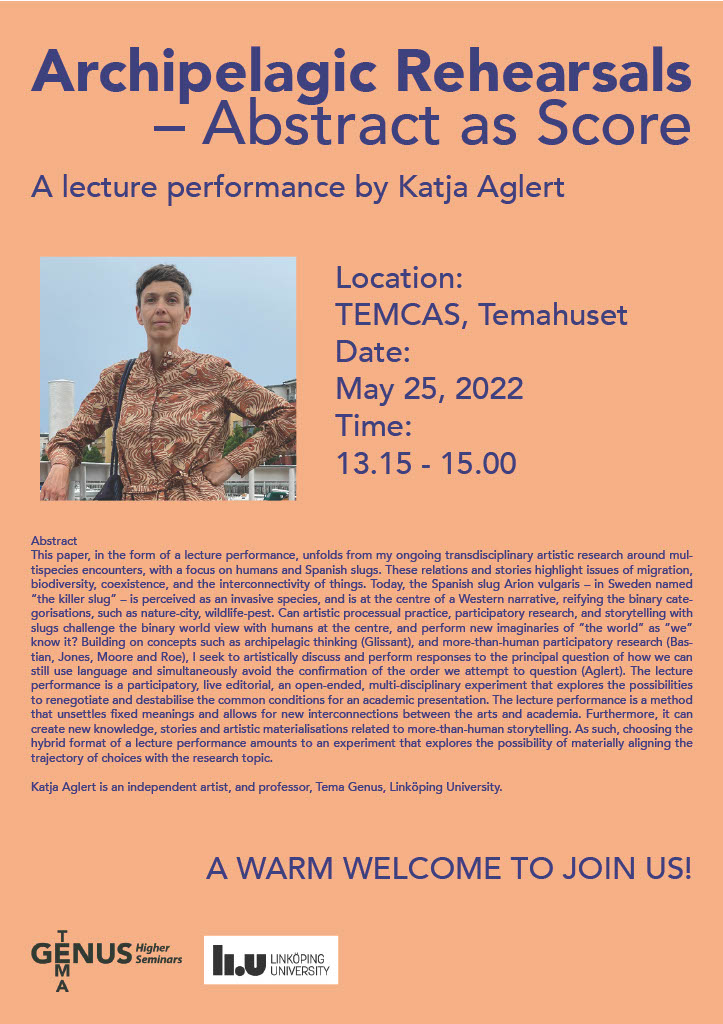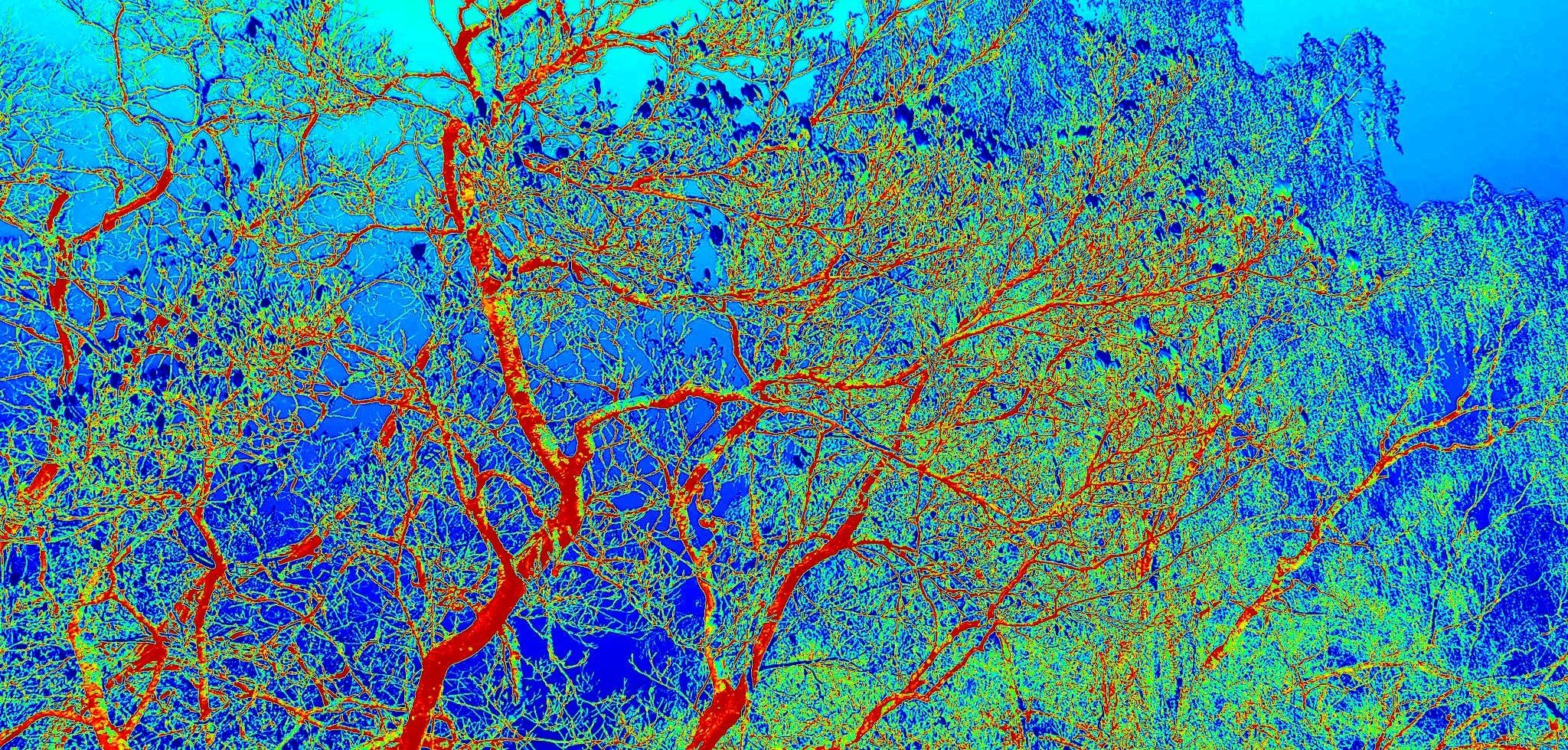-

Archipelagic Rehearsals: Tema Genus Higher Seminar with Katja Aglert, 25 May 2022, 13:15-15:00!
Join us on 25th May 2022 for this one of a kind event: Tema Genus Higher Seminar with independent artist and professor of art Katja […]
-

InterGender PhD/advanced MA course on “Debunking the method-centrism: trans/post/anti-disciplinarity and intermediation in feminist inquiry”
Check out and apply for this new exciting InterGender Consortium and Research School PhD (and advanced MA) course on “Debunking the method-centrism: trans/post/anti-disciplinarity and intermediation […]
-
Workshop: Becoming with Alien Encounters and Speculative Storytelling
Welcome to the workshop “Becoming with Alien Encounters and Speculative Storytelling in a More-than-human World” that takes place on 4th June at 13:15 – 16:00, […]